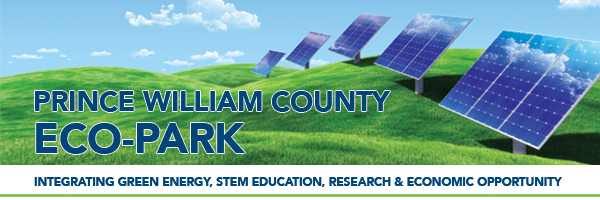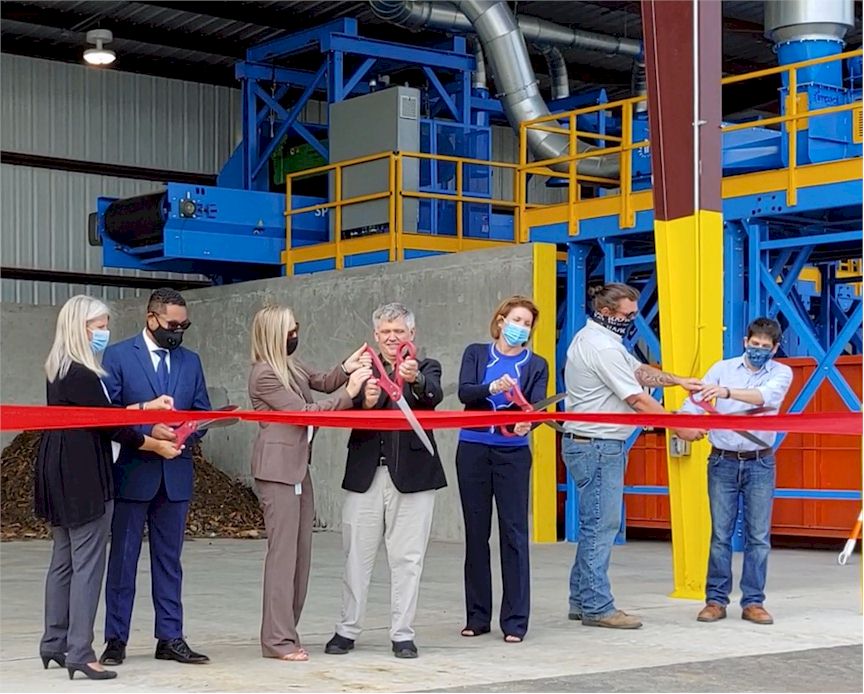Development of Prince William Eco-Park (Prince William County, Virginia)
 Technical and Economic Feasibility Study and Project Plan
Technical and Economic Feasibility Study and Project Plan
GBB was selected by Prince William County, the second-most populous County in Virginia, located about 35 miles west of Washington, DC, to explore the renewable energy technologies available for use on the County landfill. For technologies found to be applicable for the site, GBB investigated their technical requirements and limitations, order-of-magnitude costs, revenue potential, market maturity and acceptability. GBB also analyzed and presented implementation options for the Prince William Eco-Park, including ownership options, financing and cash flow implications, risk allocations, management roles and requirements, procurement implications, and present the options to the County.
Based on the results of the analysis and the procurement process selected by the County, GBB prepared a preliminary development plan outlining the potential uses of the site, the roles and responsibilities of the development team members, the scheduling of the development process, and preliminary financial projections for the County.
As part of the feasibility analysis, GBB considered the impact of the redevelopment of the site on the regulatory requirements for post-closure care, on-site and off-site land use and environmental considerations, permitting requirements, electrical interconnection requirements and costs, energy markets, funding sources, development costs of the County, procurement issues and other related matters.
Solar/Wind Project Procurement
GBB assisted with the development of solar and/or wind energy project(s) at the County landfill. The project included the procurement of a full-service design-build-own-operate developer or developers of such project(s).
In coordination with the County, GBB developed and issued an RFP for the project(s) and assisted the County in evaluating responses, recommending the most advantageous project or combination of projects and negotiating a development agreement with the selected developer(s). The RFP described the opportunity for potential developers, who could then submit their qualifications and complete technical and financial proposals. The County planned to involve both the Eco-Park Development Advisory Team and the Citizens’ Advisory Committee in this process. GBB provided technical assistance to the County, as well as support and coordination of the activities of those two special groups.
Program Planning and Management
GBB provided the general program planning and management tasks preparatory to the implementation of the renewable energy projects envisioned in the Preliminary Eco-Park Concept Plan. Work included finalizing the development plan, program and development team, supporting the County and its advisory groups in the development of the final plan, creating an overall site development plan, negotiating arrangements with respect to landfill gas availability, electrical interconnection and academic support for the proposed Sustainability Center, and performing other analyses and general tasks related to program management.
Waste Conversion Project Procurement
GBB assisted with the development of a demonstration plant (≤100 ton/day) of an emerging MSW WTE conversion technology (e.g., pyrolysis, gasification, anaerobic digestion, plasma torch, etc.) at the landfill. The demonstration plant will be part of the PWREP. The first step of the procurement process identified and described the opportunity for possible developers and the second step involved asking a short list of qualified potential proposers for a complete technical and financial proposal. The County planned to involve both the Eco-Park Development Advisory Team and the Citizens’ Advisory Committee in the process. GBB provided technical assistance to the County, as well as support to and coordination of the activities of those two special groups.
Procurement of Organic Waste Processing Facility

Thomas Smith, Freestate Farms, and other members of the Project Team cutting the ribbon together signaling the opening of the facility and an expansion of the types of food waste acceptable by the County, on September 16, 2020.
The County officially started construction of a brand-new facility to process yard waste, wood waste, and pre- and post-consumer food and animal-derived wastes in December 2018 as a result of GBB’s procurement guidance and assistance. The first of two phases of construction of the new facility was completed in September 2020. On September 16, 2020 Prince William County hosted a ribbon cutting ceremony for the opening of the Phase I advanced organics management facility.
As per the innovative 20-year public-private partnership (PPP) agreement, plus extension options, with the facility’s owner and operator, Freestate Farms, the Phase I facility transformed the County’s previous traditional windrow composting facility into an advanced composting facility using open bunkers and aerated static pile technology. Prior to Phase I, the facility processed approximately 25,000 tons per year of yard, wood, and limited pre-consumer, non-animal-derived food waste. With the implementation of the Phase I facility, the County can now recycle approximately 75,000 tons per year of yard waste, wood waste, and pre- and post-consumer food and animal-derived wastes into high-value compost, soil amendments, and natural fertilizers. The acceptance of more types and greater amounts of food waste significantly expands the County’s ability to divert organic waste from its landfill, thereby extending the life of the landfill, minimizing the contribution of landfilled organic waste to climate change, and creating positive environmental benefits from the compost facility’s outputs. The County’s new facility will also greatly expand the overall Washington metropolitan region’s ability to compost food waste and serves as a flagship facility of its kind in the region and an inspiration for all surrounding communities.
With GBB’s procurement, contracting, and construction monitoring assistance, the County anticipates the completion of the Phase II facility in 2022, which increase the facility processing capacity to a total of up to 210,000 tons per year through the construction of in-vessel advanced composting bunkers. The Phase II facility will also include the construction of solar panels to produce renewable electricity for on-site use and modular, containerized “greenhouses,” heated with the waste heat produced by the in-vessel bunkers.
GBB has also been working closely with the County on the technical and economic feasibility study, planning and implementation of the Prince William Renewable Energy Park and on the procurement process for this new state-of-the-art organics management facility. Among the expected benefits of the PPP are the creation of 20-25 jobs, increased organics processing capacity, increased recycling rate, extended landfill life, and setting a solid foundation on which to build a comprehensive County-wide organic waste management program.
See this 2-minute Prince William County video of the ribbon cutting ceremony, highlighting the new facility:
Visit Prince William County’s website to learn more about the Eco-Park or watch this 2-minute video!
 “The County has identified its existing landfill as an underused resource with the potential for creating a renewable energy base, contributing to a decrease in overall dependence on fossil fuels and the generation of greenhouse gases. With GBB’s assistance, the County is in the process of creating the Prince William Eco-Park at the landfill to take advantage of emerging renewable energy technologies, such as solar, wind, landfill gas recovery and solid waste conversion.”
“The County has identified its existing landfill as an underused resource with the potential for creating a renewable energy base, contributing to a decrease in overall dependence on fossil fuels and the generation of greenhouse gases. With GBB’s assistance, the County is in the process of creating the Prince William Eco-Park at the landfill to take advantage of emerging renewable energy technologies, such as solar, wind, landfill gas recovery and solid waste conversion.”
Steve Simmons
GBB Senior Vice President and
Project Manager for this assignment





